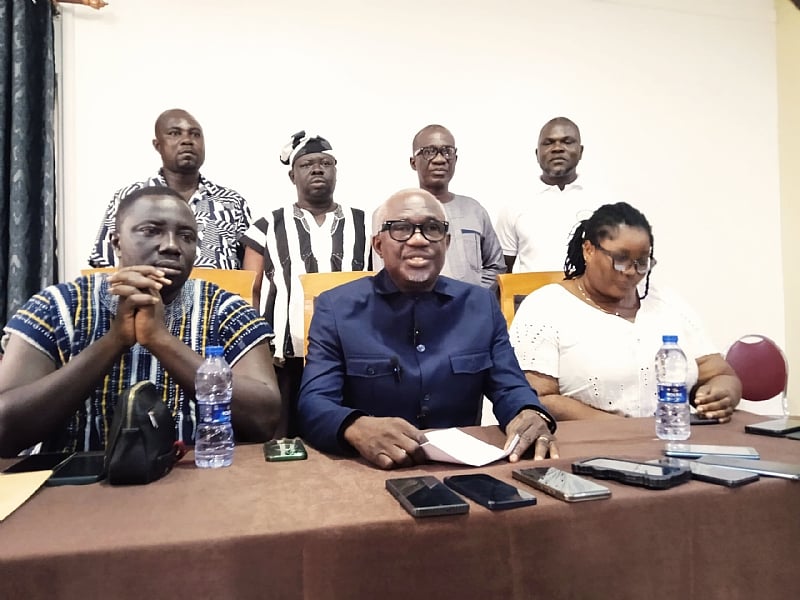Dr. David Kofi Wuaku, a seasoned financial expert and development strategist, has presented a comprehensive roadmap for the Volta Region’s transformation, contingent upon his election to the Council of State. His vision, rooted in collaboration, innovation, and strategic planning, leverages his extensive experience at the Bank of Ghana, his international consulting work, and his deep understanding of the region’s potential. Central to his plan is the unification of presidential appointees from the Volta Region, harnessing their collective influence across key ministries like Roads, Tourism, and Foreign Affairs to drive sustainable development and improve the lives of Voltarians. He aims to be the “binding factor,” facilitating cohesive action and maximizing the impact of these appointments for the region’s benefit.
A key pillar of Dr. Wuaku’s strategy focuses on revitalizing the agricultural sector. Recognizing the persistent challenges faced by farmers, particularly in marketing their produce, he proposes the establishment of agro-processing factories. These factories, conceived in consultation with engineers, are designed not only to create much-needed jobs but also to enable year-round farming through irrigation support. This initiative aims to transform the agricultural landscape, shifting from subsistence farming to a more robust and sustainable model. Furthermore, Dr. Wuaku emphasizes the importance of research and industrial processing to fully unlock the potential of the region’s rich agricultural resources.
Recognizing the transformative power of technology, Dr. Wuaku envisions the Volta Region as a thriving IT hub. He plans to achieve this through a concerted focus on IT education, providing young people with the skills and resources necessary to compete in the global digital economy. This includes implementing IT scholarship programs and establishing technology hubs throughout the region, ensuring access to computers and related gadgets from a young age. By fostering a culture of technological innovation and providing hands-on learning opportunities, he aims to empower the youth to become leaders in software and hardware development. He draws inspiration from global IT powerhouses like India, Israel, and Japan, emphasizing the need for the Volta Region’s youth to seize the opportunities presented by the digital age.
Beyond agriculture and technology, Dr. Wuaku’s vision encompasses a broader strategy for sustainable economic growth. He plans to leverage his network to attract investment, particularly in the tourism sector, creating further employment opportunities and stimulating economic activity. His financial expertise and development experience position him to effectively manage these initiatives and ensure their successful implementation. He also recognizes the untapped potential of the region’s fisheries sector, advocating for the exploration of aquaculture and sustainable marine practices to enhance food security and drive economic expansion. This multi-faceted approach aims to create a diversified and resilient economy.
Education remains a cornerstone of Dr. Wuaku’s plan. He acknowledges the Volta Region’s historically strong record of university attendance and emphasizes the importance of maintaining this tradition. He aims to encourage continued academic pursuits, fostering a culture of intellectual growth and ensuring the region continues to produce leading professors and intellectuals. He believes that education is not merely about acquiring knowledge but also about empowering individuals to contribute meaningfully to society and drive progress. This commitment to education extends beyond traditional academic disciplines, encompassing the development of transformational leaders equipped to navigate the complexities of a rapidly changing world.
Dr. Wuaku’s leadership philosophy emphasizes selfless service and a commitment to positive change. He cites figures like Nelson Mandela, JJ Rawlings, and Kwame Nkrumah as inspiring examples of leaders who prioritized the well-being of their people and dedicated their lives to achieving progress. He believes that true leadership requires not only knowledge and skills but also a deep sense of responsibility and a commitment to serving the community. As the election approaches, he urges assembly members to vote with the future of the Volta Region in mind, choosing leaders who are driven by a genuine desire to serve and not by personal gain. He emphasizes the critical importance of making informed decisions that will shape the region’s trajectory for years to come. He believes that the future of the Volta Region hinges on electing leaders who are visionary, dedicated, and committed to the betterment of the community.


